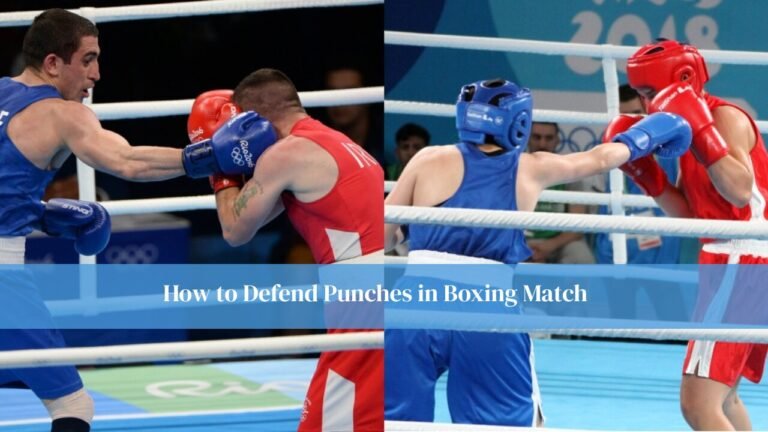The sport of boxing, with its rich history and passionate following, has always been surrounded by an aura of intensity, drama, and spectacle. From the days of bare-knuckle fights to the modern era of pay-per-view extravaganzas, boxing has evolved into a global phenomenon. Yet, beneath the surface of its celebrated matches and iconic champions lies a persistent question that continues to stir debates among fans, analysts, and even those within the industry: Is boxing rigged?
The answer is not as straightforward as some may hope. While there have been moments in history that have raised eyebrows and ignited controversies, outright rigging—where fights are deliberately fixed in advance—is far less common than many suspect. The sport operates within a complex ecosystem governed by sanctioning bodies, athletic commissions, and strict licensing protocols designed to maintain integrity. These organizations establish rules, oversee weigh-ins, manage officials, and impose disciplinary actions when misconduct is found.
Yet, boxing exists at the intersection of sport and business. It is a multi-billion-dollar industry driven by prize purses, broadcasting rights, sponsorship deals, and ticket revenue. That commercial reality inevitably influences decision-making, from matchmaking to promotional strategies. While most trainers, athletes, promoters, and officials strive to uphold competitive fairness, the delicate balance between athletic merit and financial gain means suspicions will always have fertile ground.
Controversies That Fuel Doubt
Over the decades, certain events have cast a shadow over boxing’s image, leaving fans questioning whether every fight outcome is determined solely by skill inside the ring. Disputed judging decisions are among the most common catalysts for such doubt. In numerous high-profile bouts, judges’ scorecards have appeared inconsistent with what the audience witnessed, leading to heated post-fight debates and widespread dissatisfaction.
Unexpected outcomes can also spark suspicion. When a heavily favored champion falls to an underdog in dramatic fashion particularly if the fight concludes with a sudden knockout or a controversial stoppage it can leave fans wondering if external factors influenced the result. Such speculation intensifies when allegations of corruption emerge, whether they involve perceived ties between promoters and officials or suspicions that certain fighters are being protected for commercial reasons.
Disputed decisions in major title fights often divide the boxing community. The split between those who agree with the official verdict and those who believe the wrong fighter had their hand raised can be so sharp that calls for rematches become unavoidable. In these situations, financial stakes are rarely far from the conversation. Major fights generate millions in revenue, and the potential for lucrative rematches can lead some to question whether certain outcomes are more business-driven than sport-driven.
The Power of Money in Boxing
There is no denying that money is one of the most influential forces in boxing. From the moment a fight is proposed to the time the final bell rings, financial considerations are interwoven into nearly every aspect of the sport. Matchmaking decisions often hinge on marketability rather than merit. A fighter’s chances of securing a title shot can be influenced less by their record and more by their ability to draw crowds, sell pay-per-view packages, and generate buzz on social media.
Promoters hold considerable sway over the careers of their fighters. Those signed to the most powerful promotional companies tend to receive greater exposure, better opportunities, and more favorable matchups. While this can be advantageous for fighters with the right backing, it raises questions about whether boxing truly operates as a meritocracy. A talented boxer without a strong promotional network may find themselves overlooked, despite deserving opportunities based on performance alone.
The financial impact also extends to judging. While there is no definitive proof that judges are bribed or coerced in high-profile cases, the perception remains that big-money fights can sometimes be scored in ways that favor more profitable outcomes. A popular champion or a marketable rising star may benefit from close rounds being scored in their favor, whether consciously or subconsciously, by judges aware of the economic implications of a particular result.
Fighter pay disparities further reflect boxing’s business-driven nature. Top-tier stars can earn tens of millions from a single bout, while lesser-known professionals might earn only a fraction of that amount, even if they put on an equally entertaining or competitive performance. Such income inequality can pressure some fighters to take high-risk bouts for financial survival, sometimes leading to mismatches that spark criticism about the sport’s safety and fairness.
Understanding the Judging System
Boxing’s scoring system is designed to create fairness, but its reliance on human interpretation means that subjectivity is unavoidable. The most widely used method, the 10-Point Must System, awards the winner of each round 10 points, while the opponent receives 9 or fewer. Judges assess rounds based on a set of criteria, including effective aggression, defensive skill, ring generalship, and the number of clean, hard punches landed.
However, not all judges weigh these criteria equally. One judge might prioritize a fighter’s ability to control the pace and maintain ring dominance, while another might value clean punching above all else. These differences in interpretation are the root cause of many controversial scorecards. Even when judges act in complete honesty, the subjective nature of scoring means close fights will almost always be met with disagreement.
The positioning of judges around the ring also influences their perspective. Each judge sees the action from a different angle, and certain punches or defensive maneuvers may be more visible—or completely obscured—depending on where they are seated. While technology, such as instant replay, has been suggested as a way to improve accuracy, it has yet to be widely adopted in professional boxing scoring.
The Question of Rigging
So, is boxing truly rigged? The reality is nuanced. There is little concrete evidence of widespread, systematic corruption in modern boxing. That said, the sport’s structure—heavily influenced by financial incentives, subjective judging, and promotional power—does create an environment where suspicions thrive. For fans who witness a fighter dominating only to lose on the scorecards, or for boxers denied opportunities despite strong performances, it is easy to believe the game is tilted.
This perception is a challenge boxing must address. Greater transparency in judging, stricter oversight of promoter-official relationships, and the adoption of technology to assist in scoring could help restore confidence. By making decision-making processes more open and accountable, boxing can reduce the speculation that has long plagued its reputation.
Preserving Boxing’s Legacy
Despite these challenges, boxing remains one of the most captivating sports in the world. Its blend of raw physicality, mental discipline, and tactical precision continues to inspire both participants and spectators. The sport’s history is rich with legendary rivalries, dramatic comebacks, and unforgettable moments that have transcended the ring.
The future of boxing depends on maintaining that legacy while adapting to modern expectations of fairness and integrity. Initiatives such as enhanced referee training, more consistent judging standards, and stronger regulatory frameworks can play a critical role. At the same time, fighters, promoters, and governing bodies must work collaboratively to ensure the sport remains competitive, transparent, and worthy of its global following.
Boxing’s enduring appeal lies not only in its iconic champions but also in its ability to continually reinvent itself in response to challenges. As technology, fan engagement, and athlete representation evolve, so too will the ways in which the sport safeguards its reputation.
Conclusion
The question of whether boxing is rigged will likely never disappear entirely. The sport’s combination of high stakes, subjective scoring, and financial interests ensures that debates will persist. But while suspicion may be an unavoidable part of the conversation, the essence of boxing its courage, skill, and heart remains untarnished for those who love it. With ongoing reforms, technological innovations, and a commitment to fairness, boxing can continue to deliver the moments of brilliance that have defined it for generations.
FAQs
How are boxing matches scored?
Judges score boxing matches based on landed punches, effective aggression, ring control, and defense, among other factors.
What role do promoters play in boxing?
Promoters are responsible for organizing fights, securing venues, and negotiating contracts. Their role is crucial but can also lead to questions about conflicts of interest.
Have there been any major reforms in boxing to combat corrosion?
Yes, efforts to reform boxing have included stricter regulatory oversight and new technologies to enhance judging accuracy. These initiatives aim to ensure fairness and uphold the sport’s integrity.




